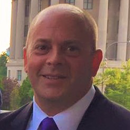The states are taking a stand on effective teaching. As legislatures across the country have focused on evaluating and supporting better teacher performance as the linchpin to boosting student success, the majority have adopted performance standards. Better yet, they have adopted new evaluation systems that can give these standards real power, particularly in terms of awarding tenure.
But in many ways, that’s all after the fact—most states have stayed silent when it comes to setting standards for who gets into the profession in the first place. Virtually everywhere, earning a teaching license requires a good deal of paperwork but no actual teaching skills. The same goes for license renewals, too. It’s enough to be willing—who cares if you’re able?
It’s like putting a child on a flight piloted by someone whose qualifications are based entirely on an expressed interest in flying a plane and a completed series of ground-school courses. Simulator time and actually flying the plane? Not part of the equation. Yet teachers—even brand-new, inexperienced teachers—perform very differently in the classroom, and research shows that these differences are the best predictors of future success.
It is to the benefit of everyone to build on states’ new performance standards and multiple-measure evaluation systems to grant or renew licenses based on success with students. Here’s a roadmap:
Entry to the Profession: Widening the Applicant Pool
In most states, the system for earning an initial license is driven by a series of “inputs” that measure courses taken, content knowledge and the ability to complete a stack of paperwork. There are a number of barriers to entry that have no connection to effective teaching and can prevent potential new teachers, particularly mid-career professionals, from becoming teachers. These include overly prescriptive requirements for where they can be trained, what courses they must take and how many hours they must spend in different activities. (We’ve shifted away from “inputs” in selecting our Teaching Fellows this year.)
Research shows there is more variation among candidates in the same program than among pipelines themselves, and that the vast majority of existing, approved-for-licensing prep is mediocre and fails to focus on proven skills. The emphasis must shift from assessing how teachers were trained or obtained their knowledge to assessing what they actually do in the classroom, and whether that sets them up for success with students. New teachers should be required to pass relevant content area exams, have their classroom skills assessed throughout their first year of teaching and receive personalized feedback to guide their development. Classroom performance during this first year should be used to determine whether these new teachers advance forward to be granted a license, be given additional development opportunities or should not continue in the classroom.
Early Career: Demonstrating Early Effectiveness and the Potential to Grow
In most states, once a teacher receives his or her initial license, he or she can advance to a permanent “Professional” license by completing an induction program—which usually does not include demonstration of effective classroom performance as a condition of completion. By this point, teachers have spent more than two years in the classroom, but instead of looking at their performance, state licensure systems set up a proxy system in which teachers secure a permanent license to teach by doing a bunch of paperwork after school.
Teachers should demonstrate effectiveness to earn a professional license, through classroom observations, response to feedback and evidence that students are meeting learning objectives (as we’ve begun to do with initial certification through our Teaching Fellows programs). If they can’t, they are highly unlikely to ever become effective teachers. Evaluating performance can also create opportunities to provide personalized professional development and coaching for teachers who are growing, but not yet ready to demonstrate effectiveness.
Mid-Career Renewals: Reducing Burdens, Targeting Resources
Currently, all mid-career teachers spend time and money filling out paperwork and taking classes in order to renew their teaching licenses. Meanwhile, state offices spend time reviewing those forms.
Highly effective teachers should have their licenses automatically renewed. There is no reason a teacher who has earned a professional license and consistently demonstrates effective practice and strong outcomes for kids should have to jump through these bureaucratic hoops. Conversely, the small number of teachers who are consistently unable to demonstrate a minimal level of competence should not be renewed. And, as with earning professional licenses, teachers who are growing but not yet highly effective should receive a targeted professional development plan and have their licenses renewed if they can demonstrate improved, effective practice.
Several states have taken important steps down this road:
-
In Rhode Island, license renewal and advancement has been aligned with educator effectiveness.
-
In Tennessee, the State Board is examining the appropriate weighting of observations, student growth and other performance factors in license renewal decisions.
-
In Colorado, state Sen. Mike Johnston and Governor Hickenlooper convened a group that provided extensive stakeholder input on potential changes, including revising pathways into the profession, the role of performance assessments in licensure and establishing a tiered licensure system aligned with effectiveness.
-
Through the Council of Chief State School Officers, seven states—CT, GA, ID, KY, LA, MA, and WA—have developed plans to align their teacher prep and licensure systems with the their teacher quality standards, as recommended in CCSSO’s Our Responsibility, Our Promise.
In some cases, states have encountered a charged political atmosphere. I believe protests that licenses should not be aligned with performance should be noted for what they are: putting adult job security or institutional revenues ahead of what’s best for teachers and kids.
For educators, a better licensure system would mean doing away with unproductive, burdensome requirements. For districts, fewer barriers to entry would mean a wider variety of potential teachers. But above all, for students, a system focused on individual performance would ensure that all of their teachers had the skills to help them achieve in the classroom—and beyond.








